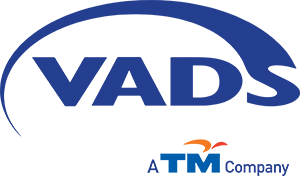Newsroom
- VADS
- Newsroom
- Omnichannel Solutions for Large and Small Businesses: What's the Difference?
Omnichannel Solutions for Large and Small Businesses: What's the Difference?
12 November 2024

In the digital era, an omnichannel strategy has become essential for businesses of all sizes to deliver a consistent and comprehensive customer experience. With this approach, companies can connect various communication channels such as email, phone, live chat, social media, and mobile apps to create integrated customer interactions. While the benefits are similar, omnichannel solutions differ in their implementation for large and small businesses. This article explores these differences and how businesses of all sizes can maximize the benefits of an omnichannel strategy.
1. Different Technology Needs
Large businesses typically require more complex, fully integrated systems across all departments to support their omnichannel strategies. They often need advanced Customer Relationship Management (CRM) systems that can handle large volumes of customer data and ensure integration at every touchpoint.
In contrast, small businesses tend to prefer simpler, cost-effective solutions. They may not need an extensive CRM system but rather a more accessible omnichannel platform with a simple interface. Small businesses generally choose an omnichannel solution that covers essential functions like social media management, chat, and email in one platform.
2. Flexibility in Implementation
Small businesses are often more flexible in adopting an omnichannel strategy due to smaller teams and faster processes. They can quickly transition to various platforms or adjust their strategy without having to set up complicated workflows. Additionally, employees in small businesses often handle multiple roles, allowing one team to manage various communication channels simultaneously.
Conversely, large businesses need to consider more complex and coordinated organizational structures to manage omnichannel solutions effectively. Dedicated departments may be necessary to handle this strategy and keep each division connected.
3. Budget and Resources
Large businesses generally allocate a bigger budget for implementing omnichannel solutions since they require scalable technology and may need to partner with external service providers. This budget enables them to use cutting-edge technology and provide intensive training for employees.
Small businesses, on the other hand, look for more cost-effective but efficient solutions. With limited budgets, they tend to opt for tailored omnichannel services that match their needs and offer flexible subscription options. Many omnichannel providers offer tiered packages, allowing small businesses to choose a plan that suits their requirements and financial capacity.
4. Approach to Data Collection and Management
Large businesses have the advantage of gathering and analyzing customer data on a large scale. With larger data sets, they can create highly personalized customer experiences and predict customer needs more accurately. Analytics tools often include Artificial Intelligence (AI) and machine learning to help understand customer behavior across multiple channels.
Small businesses can still achieve personalization, but on a smaller scale. Collected data is typically used to create warm and personalized interactions at each touchpoint, making customers feel valued. While they may not have access to advanced technology like large companies, small businesses can still leverage simpler software to gain insights into customer preferences.
5. Employee Training and Competency
Large businesses often allocate dedicated resources for training employees on omnichannel solutions, ensuring that each team member understands how to manage customer interactions effectively across channels. They may create comprehensive training modules so employees can meet customer expectations optimally.
Small businesses tend to offer simpler training programs. With fewer employees, training is often more personalized and flexible. Small businesses may leverage online resources or partner with omnichannel providers that offer basic training, making it easier to adopt this strategy.
6. Scalability and Growth of Omnichannel Solutions
For large businesses, omnichannel solutions are typically built to support the company’s future growth. This means that the systems and platforms used should be able to handle increasing volumes of interaction and adapt to new trends in customer interaction.
Meanwhile, small businesses may not experience the same growth scale but still need flexible solutions. Omnichannel solutions for small businesses often offer the scalability to grow as the customer base expands while remaining adaptable to the business's size and needs.
Conclusion
Omnichannel solutions offer numerous benefits to both large and small businesses, with unique approaches and adjustments according to each business's scale and needs. In implementation, large businesses require advanced technology to handle high interaction volumes and complex structures, while small businesses benefit from flexibility and cost efficiency with simpler, easy-to-manage systems.
As a partner in customer service solutions, PT VADS Indonesia offers omnichannel solutions designed to help businesses of all sizes deliver optimal customer experiences. With our services, you can maximize customer interactions across various channels with an integrated and effective approach. Discuss your business's omnichannel needs with us today to find the solution that best suits you!
Related News
05 March 2026
26 February 2026
23 February 2026
12 February 2026
12 February 2026
09 February 2026
05 February 2026
02 February 2026
29 January 2026
22 January 2026
19 January 2026
15 January 2026
12 January 2026
08 January 2026
05 January 2026
24 December 2025
22 December 2025
12 December 2025
04 December 2025
27 November 2025
20 November 2025
17 November 2025
13 November 2025
10 November 2025
03 November 2025
27 October 2025
23 October 2025
09 October 2025
02 October 2025
29 September 2025
29 September 2025
26 September 2025
26 September 2025
25 September 2025
22 September 2025
18 September 2025
15 September 2025
15 September 2025
11 September 2025
04 September 2025
04 September 2025
01 September 2025
28 August 2025
28 August 2025
21 August 2025
19 August 2025
11 August 2025
01 August 2025
30 June 2025
20 June 2025
19 June 2025
27 May 2025
02 May 2025
17 April 2025
14 March 2025
07 March 2025
28 February 2025
18 February 2025
14 February 2025
11 February 2025
07 February 2025
28 January 2025
24 January 2025
21 January 2025
14 January 2025
07 January 2025
02 January 2025
30 December 2024
27 December 2024
17 December 2024
13 December 2024
10 December 2024
06 December 2024
03 December 2024
29 November 2024
19 November 2024
14 November 2024
08 November 2024
05 November 2024
01 November 2024
31 October 2024
25 October 2024
22 October 2024
18 October 2024
16 October 2024
11 October 2024
09 October 2024
08 October 2024
07 October 2024
27 September 2024
24 September 2024
20 September 2024
13 September 2024
10 September 2024
06 September 2024
04 September 2024
02 September 2024
02 September 2024
09 August 2024
05 August 2024
26 July 2024
23 July 2024
02 July 2024
25 June 2024
18 June 2024
14 June 2024
06 June 2024
31 May 2024
24 May 2024
26 April 2024
02 April 2024
08 March 2024
05 March 2024
01 March 2024
29 February 2024
27 February 2024
23 February 2024
20 February 2024
16 February 2024
13 February 2024
09 February 2024
06 February 2024
02 February 2024
30 January 2024
26 January 2024
23 January 2024
19 January 2024
17 January 2024
12 January 2024
09 January 2024
05 January 2024
04 January 2024
29 December 2023
26 December 2023
20 December 2023
13 December 2023
08 December 2023
05 December 2023
28 November 2023
23 November 2023
17 November 2023
14 November 2023
09 November 2023
08 November 2023
01 November 2023
24 October 2023
17 October 2023
17 October 2023
11 October 2023
10 October 2023
06 October 2023
04 October 2023
29 September 2023
27 September 2023
26 September 2023
22 September 2023
21 September 2023
15 September 2023
08 September 2023
01 September 2023
22 August 2023
18 August 2023
15 August 2023
15 August 2023
04 August 2023
26 July 2023
21 July 2023
04 July 2023
03 July 2023
30 June 2023
09 June 2023
01 June 2023
30 May 2023
26 May 2023
19 May 2023
17 May 2023
12 May 2023
04 April 2023
16 March 2023
09 March 2023
24 February 2023
22 February 2023
14 February 2023
13 February 2023
09 February 2023
31 January 2023
26 January 2023
23 January 2023
19 January 2023
12 January 2023
10 January 2023
06 December 2022
31 August 2022
17 June 2022
09 May 2022
20 April 2022
06 April 2022
01 April 2022
25 February 2022
23 February 2022
21 February 2022
18 February 2022
15 February 2022
11 February 2022
08 February 2022
07 February 2022
04 February 2022
02 February 2022
31 January 2022
17 January 2022
14 January 2022
07 January 2022
03 January 2022
28 December 2021
07 December 2021
01 November 2021
27 October 2021
25 October 2021
18 October 2021
15 October 2021
14 October 2021
21 September 2021
22 April 2021
15 April 2021
13 April 2021
08 April 2021
05 April 2021
26 March 2021
23 March 2021
18 March 2021
15 March 2021
12 March 2021
09 March 2021
04 March 2021
02 March 2021
26 February 2021
23 February 2021
19 February 2021
16 February 2021
11 February 2021
09 February 2021
04 February 2021
02 February 2021
26 January 2021
21 January 2021
19 January 2021
14 January 2021
12 January 2021
07 January 2021
05 January 2021
29 December 2020
17 December 2020
15 December 2020
10 December 2020
08 December 2020
04 December 2020
02 December 2020
18 November 2020
16 November 2020
13 November 2020
11 November 2020
10 November 2020
09 November 2020
06 November 2020
04 November 2020
28 October 2020
23 October 2020
12 October 2020
09 October 2020
06 October 2020
02 October 2020
30 September 2020
23 September 2020
19 September 2020
26 August 2020
22 July 2020
23 April 2020
16 April 2020
09 April 2020
26 March 2020
19 March 2020
12 March 2020
05 March 2020
27 February 2020
20 February 2020
13 February 2020
06 February 2020
